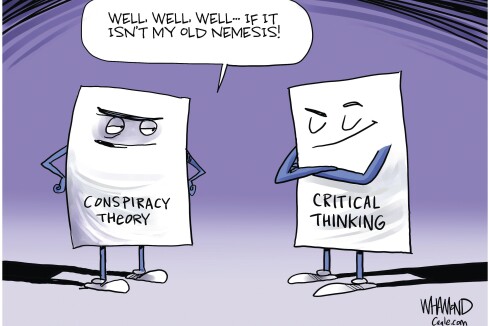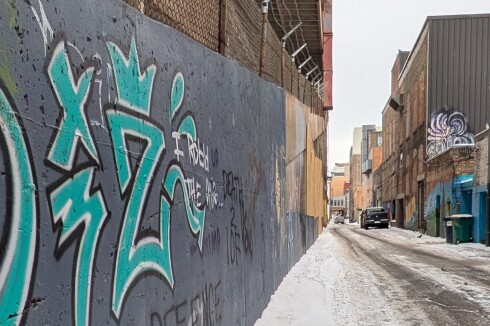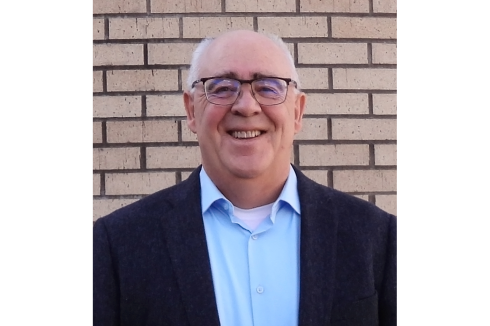At the top of the city of Duluth’s wish list for the 2025 session of the Minnesota Legislature, scheduled to kick off Tuesday, Jan. 14, is state funding to complete Aerial Lift Bridge and Duluth Water Treatment Plant improvements. St. Louis County’s top priorities include state money for an integrated solid waste management campus in Canyon. And the Duluth Public Schools, as a headline on its “Legislative Platform 2025” document screams, wants state lawmakers to finally fully fund education.
There’s more, lots more (detailed below), all of it raising a fair and important question: Do the city’s, county’s, and school district’s priorities jibe with our priorities as citizens and as a community? Duluthians and county residents have a responsibility to seriously consider that and to regularly weigh in, ensuring our government leaders’ and elected representatives’ focus and work reflect, always, our wants and our very real needs. They represent and work for all of us, remember.
ADVERTISEMENT
The city of Duluth calls its legislative priorities “straight-forward” (sic) and “regionally significant,” with a “focus on core city services.”
That starts with the lift bridge, its prospects for overdue and necessary structural repairs and other improvements bolstered last week by the announcement of an $11.2 million federal grant. The bridge, however, is in need of millions more in repairs, so state support remains necessary.
The City of Duluth Water Treatment Plant — which also serves Proctor, Hermantown, and Rice Lake and which has a pump house that’s over a century old — is in dire need of structural and roof repairs. Is there anything more important than ensuring clean water?
The city is also seeking state dollars to rehabilitate Lot D on the Bayfront so it can be redeveloped. Seawall repairs, the demolition of infrastructure and utilities, and site prep are all needed there.
Duluth also would like the state to protect Local Government Aid and create a tax credit to encourage the restoration and vibrant reuse of abandoned or underutilized commercial buildings.
State dollars additionally are needed, according to the city, to help replace the aging control tower at Duluth International Airport; to support an aircraft-shelter project at the 148th Fighter Wing; to begin planning for the construction of a Spirit Valley Community Center; to improve accessibility, take care of deferred maintenance, and improve energy efficiencies at the Duluth Entertainment Convention Center; for an engagement center at the Union Gospel Mission; and for capital improvements at the Great Lakes Aquarium.
St. Louis County’s “Legislative Platform” document opens with a statement of values (“people-focused,” “stewardship,” “integrity,” “fairness,” and “innovation”) and a desire for “healthy and safe communities,” sound infrastructure,” “stewardship” and better government. Funding requests include $6 million for the aforementioned project in Canyon that would be a regional repository for leachate from landfills and a solution for our area for PFAS, or forever chemicals; $8 million to fix the HVAC systems and make other improvements at the Depot in Duluth; and $8 million to improve access while also promoting economic development and trail connections at the Rock Ridge School in Eveleth.
ADVERTISEMENT
Like the city, the county supports the Union Gospel Mission and airport air traffic control tower projects. It additionally supports $7 million for a wastewater treatment system at Ash River, $2.5 million to shore up the Lake Superior shoreline at Scandia Cemetery in eastern Duluth, and the Northern Lights Express (NLX) passenger train proposed to be created between the Twin Ports and Twin Cities.
The Duluth School District is expected to approve its legislative platform later this month. The current draft calls for “increased state aid” to local districts, “permanent funding streams” for education, “special education funding,” “technology funding,” “career and technical education support,” and more state money for Solar for Schools grants and to address low reading scores and literacy disparities.
The district is also seeking state support for a massive community effort to meet future Northland workforce needs via education and job training. The collaborative effort, called the “Duluth Promise,” is being led by the district, city, University of Minnesota Duluth, College of St. Scholastica, Lake Superior College, Duluth chamber, APEX, and Duluth Workforce Development Board.
Sure, there’s lots of government-speak, bluster, and bombast in the city’s, county’s, and school district’s legislative wish lists. But there also are a lot of important issues and critical needs that demand an elected Legislature willing to work together for the good of Minnesotans — people first instead of party first.
And one question remains: Do the priorities detailed accurately reflect our own wants and needs? It’s on us to ensure they do.















